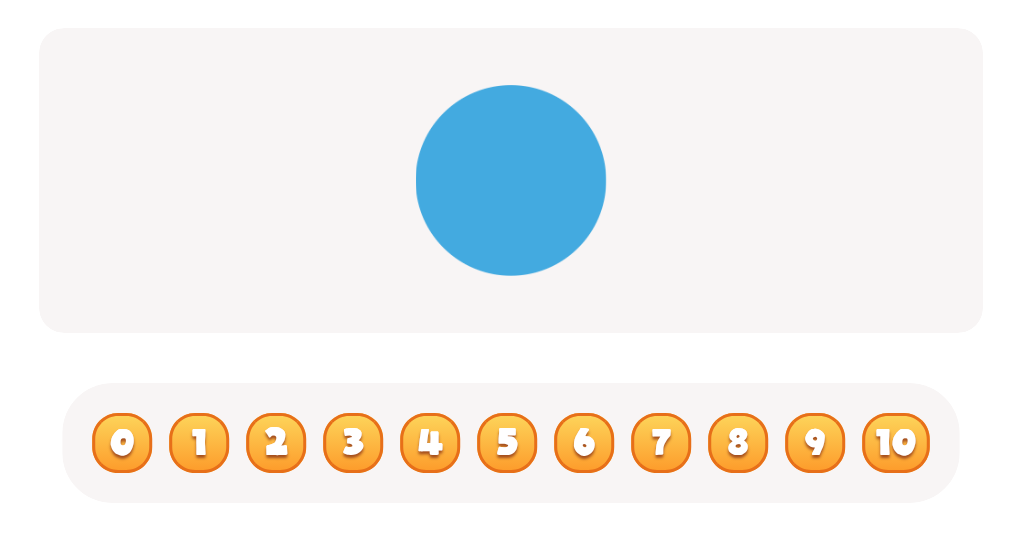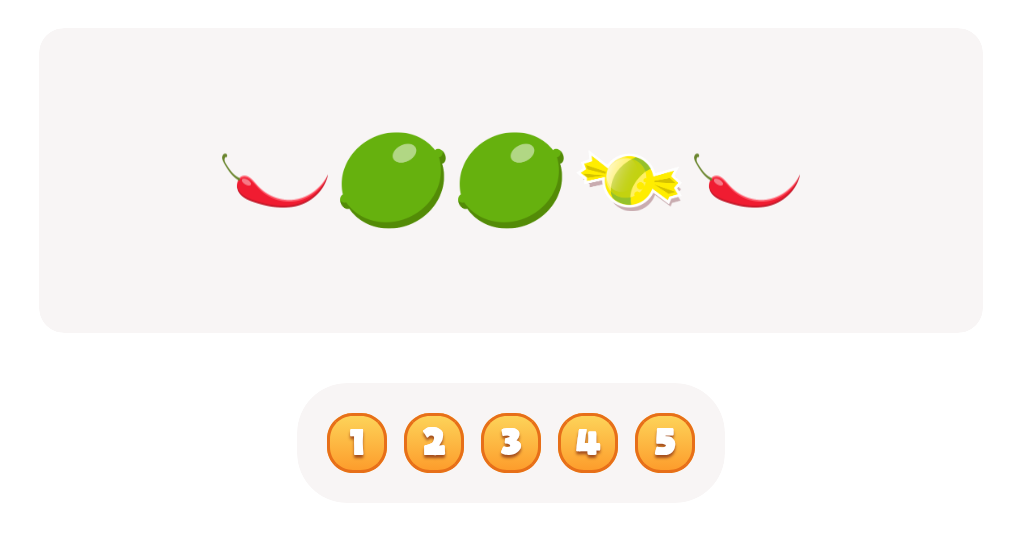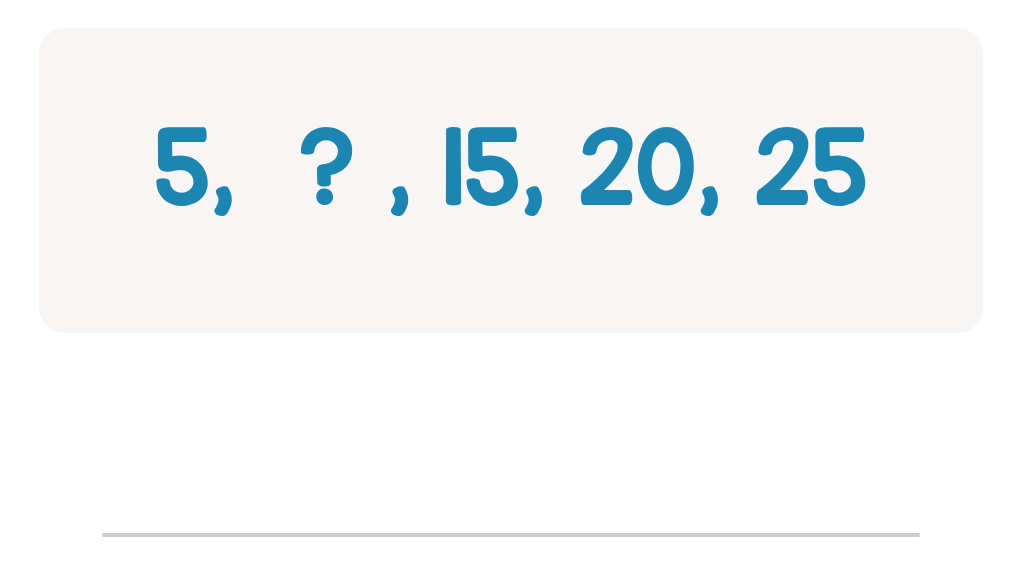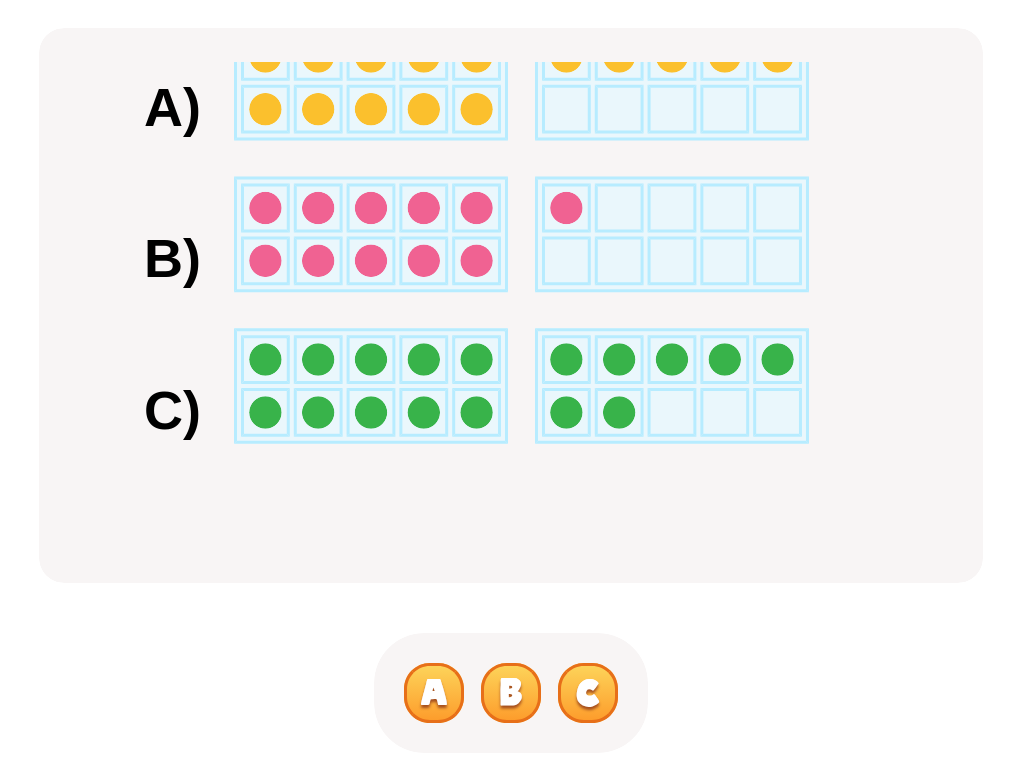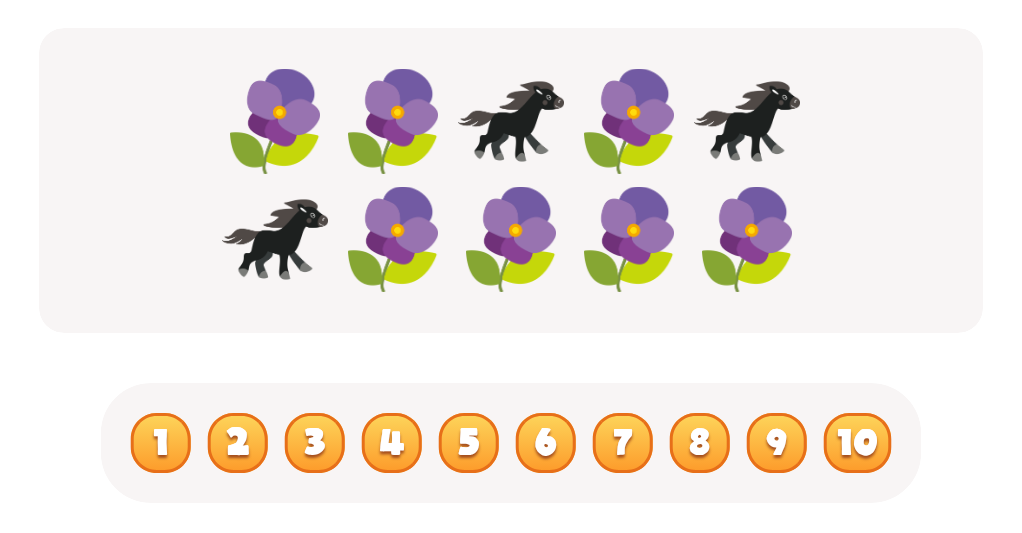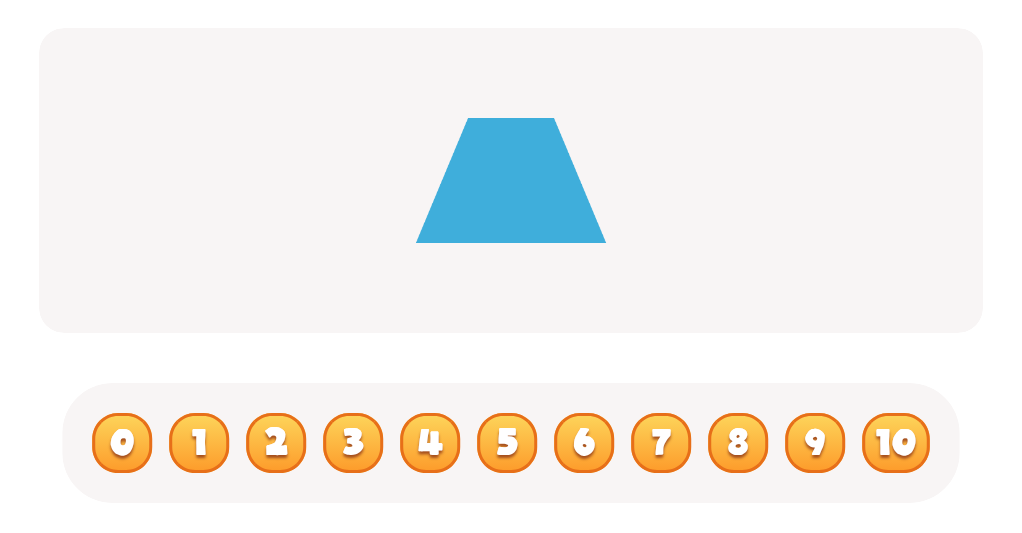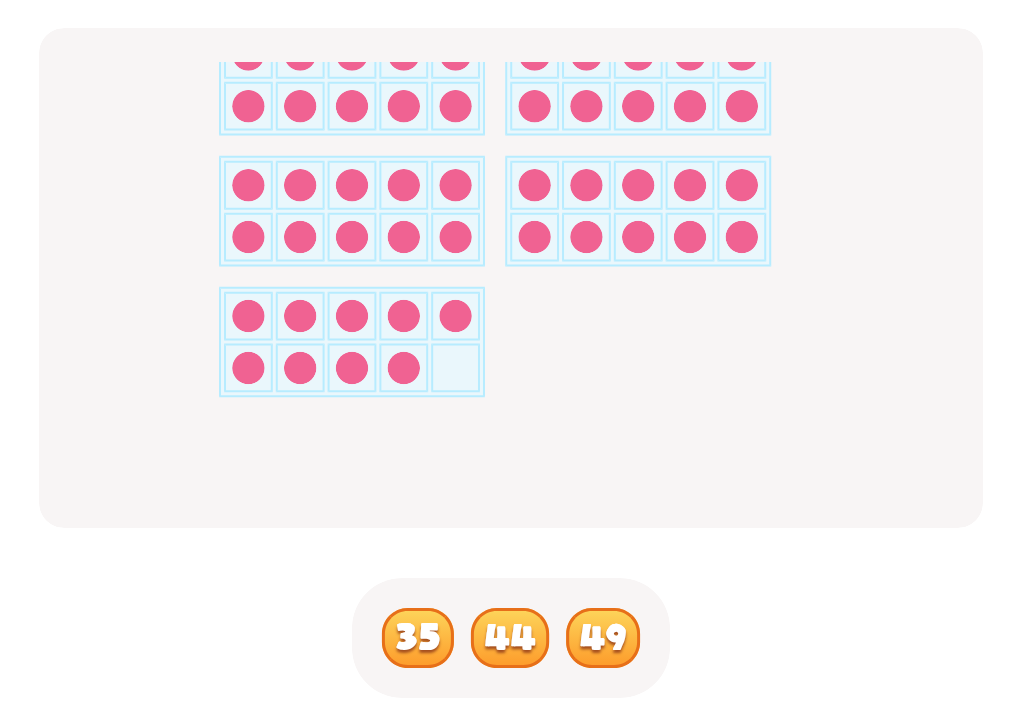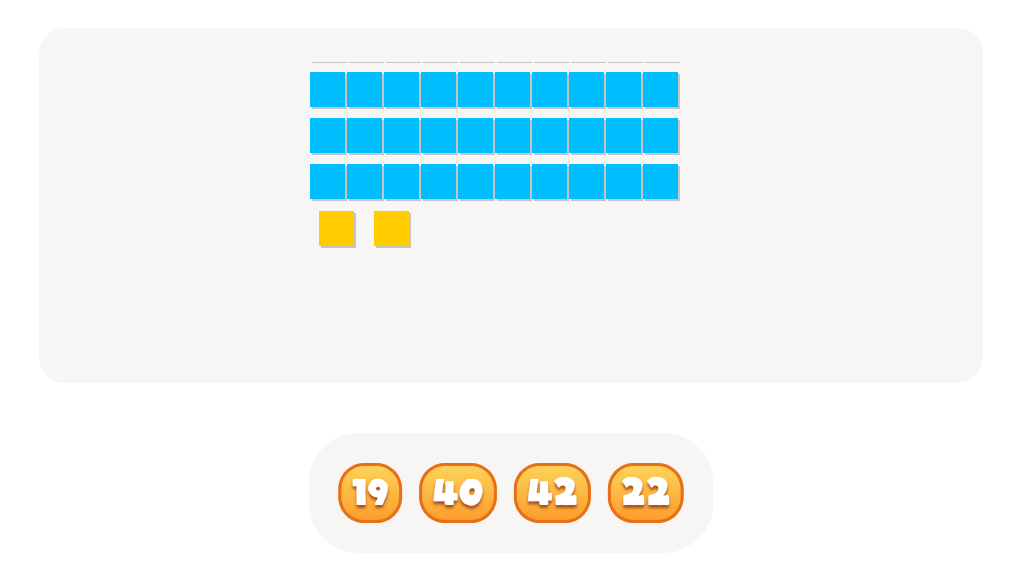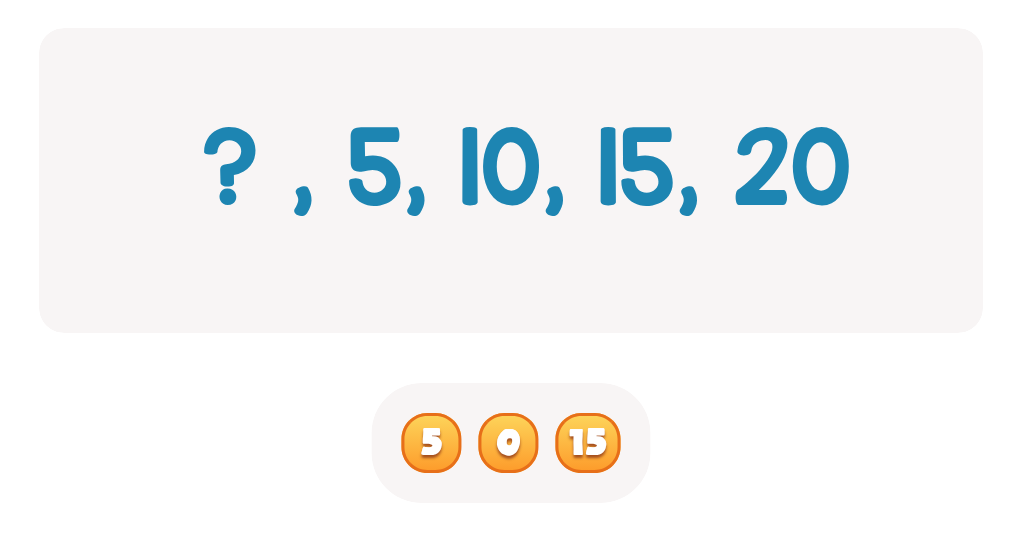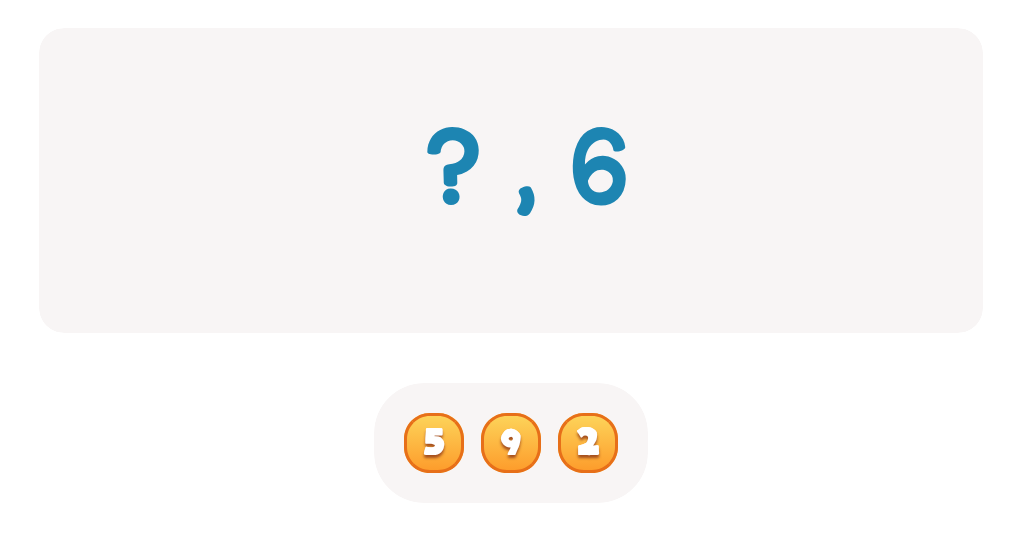Addition Practice Counting Worksheets for Ages 5-9
4 filtered results
-
From - To
Give children aged 5-9 a fun and engaging way to enhance their math skills with our Addition Practice Counting Worksheets! Designed to build a strong foundation, these printable sheets feature a variety of exercises that help young learners understand basic addition concepts. From colorful illustrations to interactive tasks, each worksheet is crafted to make learning enjoyable and effective. Perfect for both classroom and at-home practice, our addition worksheets help instill a love of math in your child while improving their counting skills, whether they are just beginning or need extra practice. Discover the joy of learning today!
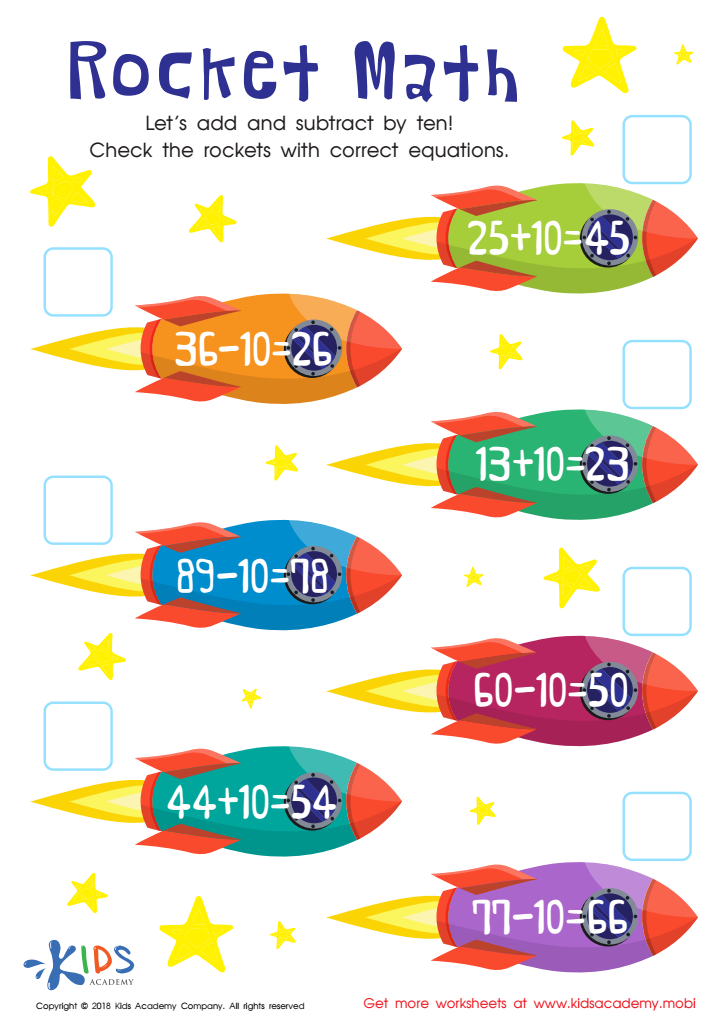

Rocket Math Worksheet
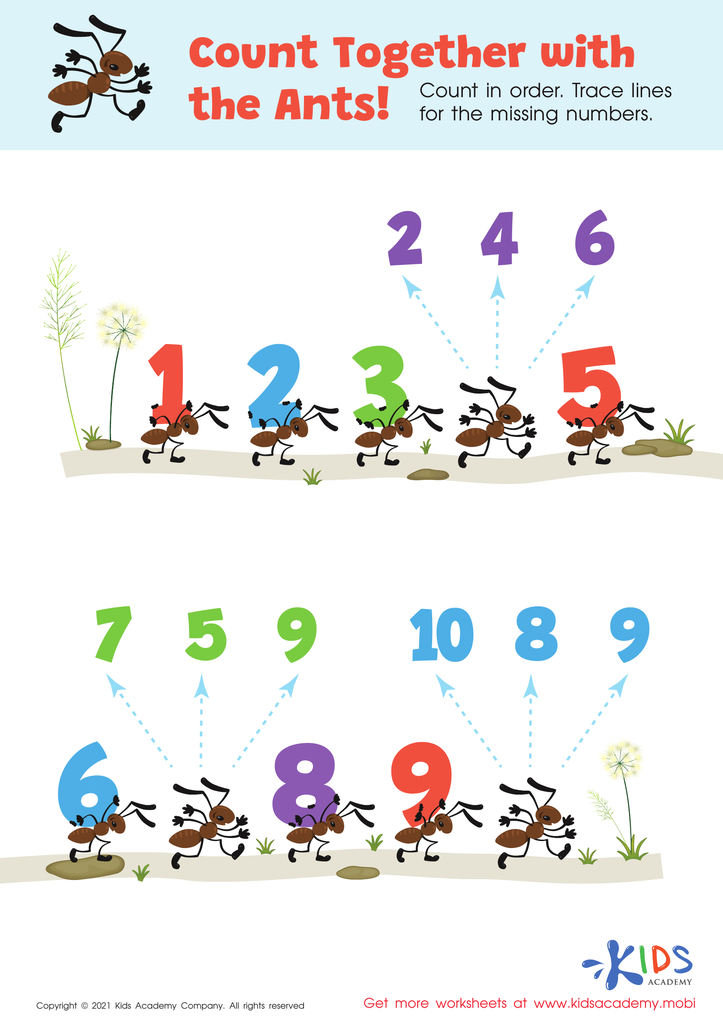

Count Together with the Ants Worksheet
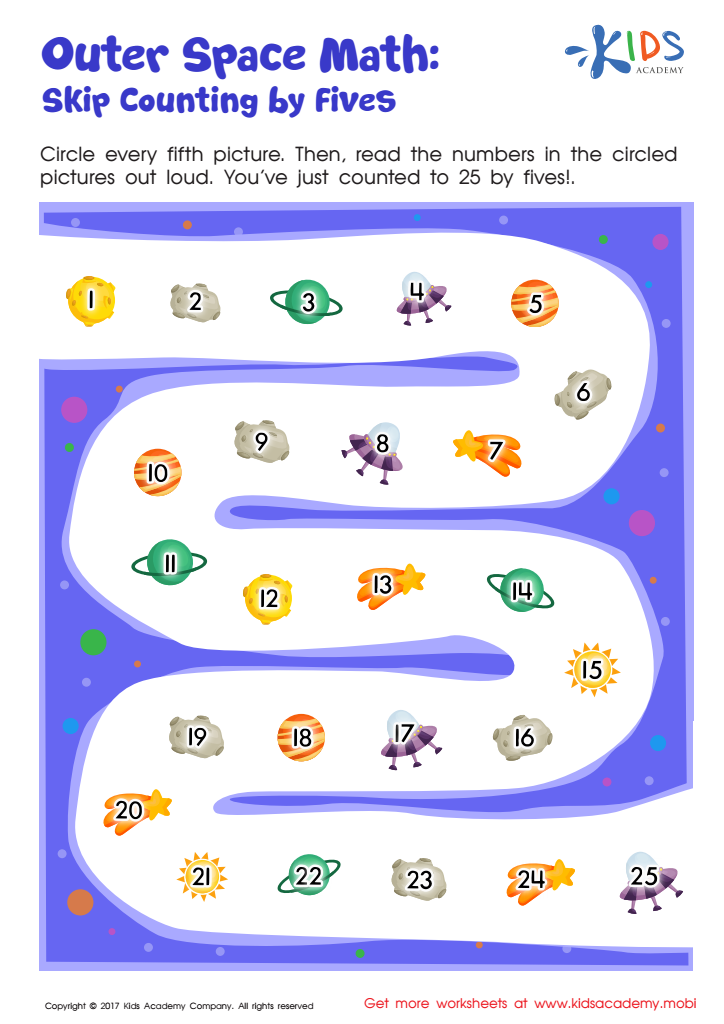

Skip Counting by 5s: Outer Space Math Printable
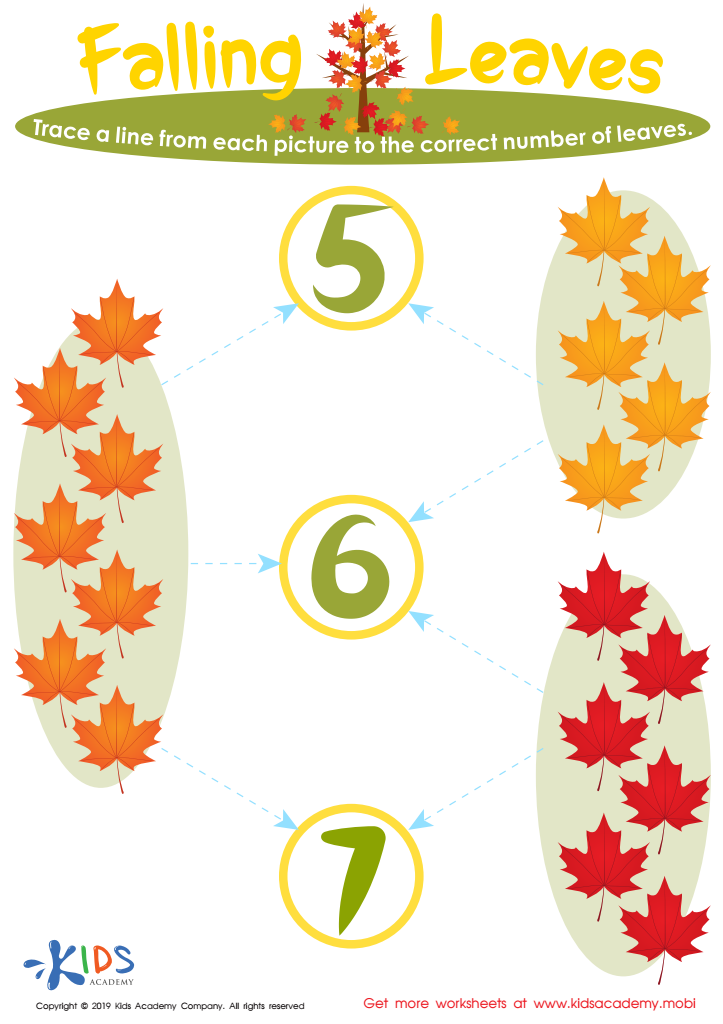

Falling Leaves Worksheet
Parents and teachers should prioritize addition practice counting for children aged 5-9 because it lays the foundational skills necessary for future math success. Developing a solid understanding of basic addition at an early age helps to build confidence and foster a positive attitude towards math. This skill is crucial for everyday activities, such as telling time, handling money, and measuring ingredients while cooking.
Early math proficiency is a strong predictor of later academic achievements. Mastering addition concepts helps young learners grasp more complex mathematical operations, like subtraction, multiplication, and division. These skills are not only essential for problem-solving in academic settings but also critical to improving logical thinking and decision-making abilities in real-life scenarios.
Moreover, engaging in regular addition practice enhances cognitive development. It improves memory, concentration, and the ability to sequence and organize information—skills that are transferable across all areas of learning and practical living.
Providing hands-on, interactive, and fun addition practice opportunities keeps young children engaged and nourishes their curiosity. Whether through games, manipulatives, or daily activities, this approach helps ensure that learning is enjoyable, thereby enhancing educational outcomes. Thus, parents and teachers have a vital role in nurturing a strong mathematical foundation through consistent addition practice.

 Assign to My Students
Assign to My Students
